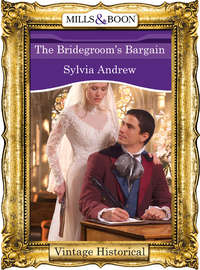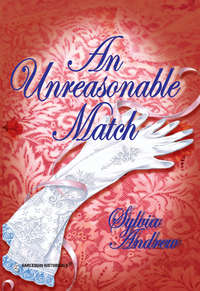
Полная версия
Regency High Society Vol 2: Sparhawk's Lady / The Earl's Intended Wife / Lord Calthorpe's Promise / The Society Catch
“And I wondered if you would receive me when I did,” answered Caro. “But when you wrote to me that you had proof that my husband still lives, how could I not come?”
“It is a great distance for a lady to travel.”
Attuned to such subtleties, Caro didn’t miss the scornful emphasis on that lady. “I would travel any distance for Frederick’s return.”
“But I trust you did not make the journey alone.” Dorinda’s fan paused as she baited her trap. “No doubt you had a companion to ease your trial.”
“I did, yes. An American gentleman who seeks word of other captives was so kind as to agree to accompany me.”
The fan remained still, poised. “An American gentleman accompanied you? I would have expected Mr. Perkins, or perhaps dear George.”
“They did not offer,” said Caro, her cheeks warming in spite of her resolution. It wasn’t exactly a lie. They hadn’t offered, true, but then she hadn’t told them of her plans. And oh, how different that long voyage would have been with either George or Mr. Perkins in place of Jeremiah! “Mr. Sparhawk graciously did, and I accepted.”
Dorinda paused, letting the chit consider her own words. According to George, this Sparhawk was no better than a common footpad; in Captain Bertle’s opinion, the man was some sort of seafaring adventurer, prone to intemperate violence and treasonous friendships with Frenchmen. Both, without question, believed him to be Caroline’s lover.
“This Mr. Sparhawk must be an old and trusted friend to undertake such a journey with you,” she said, watching with satisfaction as the little strumpet’s blush betrayed the truth. “Perhaps a friend of Frederick’s?”
Damn her cheeks for blushing so! Consciously Caro willed her hands to keep from twisting in her lap and wished she had the same control over the blood that rushed to her face.
“I have known Mr. Sparhawk only a brief time, but he has always acted with such honor and good grace that I felt my trust would not be misplaced,” she said carefully. “Although he is American, his sister is married to Admiral Lord John Herendon.”
“Ah, Britain’s own pretty Lord Jack,” purred Dorinda, remembering when Herendon, then a frigate captain, had been stationed with the other English ships in the bay. She had met him at the palace and found him much to her liking, tall and gold-haired like a Grecian god, and so much more like a hero than that poor bedraggled little Lord Nelson. Forty years ago, thought Dorinda nostalgically, no, even thirty, and she would have made a conquest of Lord Jack.
But for this man Sparhawk to be connected to the Herendons put a whole different coloring on Caroline’s infidelity. Jack Herendon would have married a beauty, and her brother would doubtless be comely, too, and young. Trust both George and Bertle not to tell her what would matter most to a woman!
“Are they of a piece then, this Mr. Sparhawk and Lord Jack?” she asked archly. “Certainly any lady would wish for a man of Lord Jack’s courage on a voyage in these uncertain times.”
“No, they are not very similar at all,” said Caro, imagining the two men side by side. “Jeremiah is taller than Jack, broader, with dark hair and green eyes. His life has not been easy, which sometimes makes him melancholy, but when he smiles, he makes one forget everything else, and he is very loyal, willing to fight to defend whatever he believes in.”
Jeremiah. The way the chit said the name alone was enough to condemn her. Worse, she was so smitten that she didn’t even realize her own error, babbling on happily about the man’s qualities. Tall, handsome, a touch of melancholia for romance, a man of action and heartbreaking smiles. Oh, yes, thought Dorinda cynically, he was everything a woman could want in a lover, and everything, too, that Frederick—quiet, awkward, gentlemanly Frederick—never would, or could, be. As a woman, Dorinda might envy the creature’s good fortune, but as a mother, she could only hate her more for scorning her son.
“Then it sounds as if you have chosen well, Caroline,” she said, her smile creasing her paint. “Mr. Sparhawk will need all his strength on the next part of the journey.”
“You have word of Frederick, then?” said Caro excitedly, forgetting all her promises to herself to be cool and distant with Frederick’s mother. “He is indeed still alive?”
Lying little hypocrite, thought Dorinda angrily. Frederick had been captured for her love, and now the chit repaid his devotion with deceit.
“We can only pray that he is,” she said, her voice smooth as cream. “They say the conditions for the prisoners are harsh, and as an English gentleman, Frederick is unaccustomed to deprivation.”
Tears filled Caro’s eyes at the thought of a man as kind and mild as Frederick suffering so. “Has anyone seen or spoken to him?”
Dorinda shook her head, the stiff black curls bobbing around her cheeks. “No, or any of the American prisoners, either. But my friends among the diplomats at the court assure me that Frederick lives, and is awaiting your assistance.”
In fact there had been no such assurances, quite the contrary. The minister who had given her the list of hostages had cautioned that it was most likely a forgery, and that by now, after two years, Lord Byfield was most certainly beyond rescue, even through the efforts of a devoted mother. Dorinda knew he was right, for she had tried before on Frederick’s behalf. It had been on that day, her grief for her son still fresh and raw, that Dorinda had written to Caro, summoning her, and to George, to reestablish her link with the future earl. George was a fool, but with him as earl she could return to die with dignity and respect at Blackstone House.
Languidly the fan moved through the warm spring air. Soon, thought Dorinda with grim satisfaction, soon the little bitch with the upturned eyes and handsome American lover would find the fate she’d earned so richly for herself.
“I would, of course, do anything I could for my son,” she continued with a sigh, “but I am far too old to enter into such negotiations as will be necessary, or would I trust them to anyone who would not care for Frederick as I do.”
“Let me do it, please, I beg you!” said Caro, eagerly leaning forward on her stool with her hands clasped. “I can make all the arrangements and arrange for the ransom. After all, that’s why I’ve come, isn’t it?”
Once again Dorinda sighed dramatically. This was almost too easy, without any sport in it. The chit was so gullible, so willing to believe, that it was no wonder that her son, another foolish idealist, would have fallen in love with her.
“Would that it were so easy, dear Caroline! But I fear that it cannot be done from Naples. No, no! The Tunisians are a sly, heathen lot who demand such business be conducted face-to-face. If you wish to help your husband, you must be willing to take your brave American and go to Tripoli, and bring Frederick back to me.”
“Then I shall,” said Caro without hesitation. Impatiently she rose to her feet, determined to begin planning at once. “Mr. Sparhawk is well acquainted with ships and sailing. I’m sure he can find us passage to Tripoli.”
“Let that be my contribution,” urged Dorinda, her eyes glinting within the dark rings of kohl. “I know the ways of this city, who to ask and who to bribe. Not even our Mr. Sparhawk will be able to find a vessel bound for Tripoli any faster than I.”
Bound for Tripoli, thought Dorinda with a delicious sense of justice, destined for the slave market and a nightmarish, anonymous half life from which Frederick’s little whore would never return alive. The lover would be killed; Dorinda would specify that, for the man had done no worse than choose unwisely. It was Frederick’s Caro she wished punished. If the silly chit was lucky, she’d be bought for a rich man’s harem, bound to serve only one infidel. If she were less so, then she would be the most costly houri in a brothel, drugged and forced to serve whichever man bought her favors.
Even that would be too kind for all she’d done: defiled the Moncrief family with her presence, banished Dorinda from England, sent Frederick to a painful death, degraded his memory with her lover. But it would do, thought Dorinda with satisfaction as Caro smiled with unfeigned joy.
It would do.
“Vesuvius, my lady?” asked the driver, his eager, florid face filling the window of the hired carriage. “The Castel Nuovo? Santa Chiara? The Royal Palace? Or would my lady see the antique statues taken from Pompeii? Very popular they are with the English gentlepeople, my lady.”
“Whatever you please,” said Caro wearily, burrowing back further into the worn squabs. In her present mood she wanted only silence, not a visitor’s itinerary. “It doesn’t matter at all to me. Simply drive until nightfall, or until I tell you otherwise.”
Though the driver’s face fell, he tugged on his forelock and climbed up on the box, ready to do as she requested. As much as he would have liked to show his city to the beautiful Englishwoman, his disappointment was tempered well enough by the fare she’d pay. Until nightfall, she said: caro mio, she’d owe him a fortune!
Inside the carriage, Caro closed her eyes and tried to let herself be lulled by the repetitious clip-clop of the horse’s hooves and the rasping of the iron-bound wheels against the paving stones. She might as well have been back in Portsmouth for all the famous scenery meant to her. Certainly she would have been happier if she were.
For now she’d been assured that Frederick lived. In a few weeks, maybe even less, she would be reunited with him, and after returning here to Naples to visit his mother as she’d promised, they would sail back home to England. At the same time Jeremiah Sparhawk would redeem his friend, bid her and her husband farewell and leave for America. Most likely she would never see him again, and that was how it should be for a contented, married woman.
But deep inside, she knew she didn’t want it to end like that. It was not that she wished ill for Frederick. Her joy for his survival was very real, and the thought of holding him again in her arms was wonderful indeed. But things were different since Frederick had gone away. She was different.
God help her, what was she to do?
The carriage passed a garden, and the heady fragrance of full-blown roses filled the carriage. She breathed it deeply, remembering.
Another June, long ago, and she had held roses in her trembling hands when she stood beside Frederick in the chilly chapel at Blackstone. There had been no guests and only two witnesses—Mr. Perkins and the housekeeper—and the anxious young curate who owed his living to the Moncriefs had stumbled over the words of the service. Afterward she had signed her name after Frederick’s in the register, prouder of the elegant penmanship she’d only recently mastered than of the new name and title she had written.
There had been more roses in the earl’s bedchamber, on the mantel in tall porcelain vases, on the desk, on the little tables beside the bed, and when Caro had drawn back the coverlet she’d discovered hundreds of rose petals scattered over the sheets, deep, velvety red against the white linen. With her long hair combed about her shoulders she had waited for Frederick in the center of his bed, the heavy curtains looped back against the posts, and felt the rose petals tickle against her bare toes as she’d listened to the thumping of her own heart.
Tonight he would truly make her his. Tonight she would do all the things her mother had taught her and please him, her new husband. She was now his by right and by law, and because she loved him she would do it, even as she prayed she would not shame herself and be sick.
At last Frederick had come, in a yellow dressing gown and nightcap, and she had hastily looked away, already embarrassed by the intimacy his dress implied. She had felt the bed shift when he sat on the edge, and her hand had been cold when he’d taken it in his.
“You know before this I have never done anything to hurt you, Caro,” he had said gently. “I won’t begin now.”
Troubled, she had raised her eyes. “But as your wife—”
“I know all about what the world says of old men who take young wives,” he said, smiling indulgently. “It’s not much different than what is said of old men with young mistresses. What matters more to me instead is the love we share, pure and unsullied by animal passions. You are in many ways more like a daughter to me than a wife, and like a father I’ve found great joy in the woman you’ve become.”
She had shaken her head, confused, and he had lightly pressed his finger to his lips to hold her silence.
“Innocence like yours is a rare jewel, Caro, beyond any price. You are too young now to know the value of what you have given me today, but I am not, and I rejoice in the gift, however fleeting. Someday, perhaps, you will learn otherwise, and though I shall grieve, I will understand.”
“But I love you, Frederick!” she had cried from the depths of her heart. “I will never love anyone else as much as I love you!”
“I love you, too, Caro.” He had kissed her on the forehead, his lips dry as parchment and his dark eyes full of tenderness and sorrow. “And because I love you, I will understand.”
And now, at last, so did she.
“Pirates?” repeated the one-legged Englishman as he squinted up at Jeremiah. “Oh, aye, guv’nor, we’ve all manner of rogues here in this little harbor. Pirates, smugglers, corsairs, heathens and rascals of most ev’ry order.”
Only half listening, Jeremiah looked over the man’s head, across the Neapolitan waterfront to the rambling medieval castle that was the royal palace of King Ferdinand IV and his Court of the Two Sicilies, and to the lavish villas on either side that belonged to other aristocrats. Caro would be in one of them now, and he longed to know how she was faring with the dowager countess. Damnation, he should have insisted on going with her! She’d only been away from him for an hour at most, and already he missed her more than he’d ever thought possible. He picked up a stone and skipped it across the water, trying to concentrate instead on what the beggar was saying.
“‘Twas better when the fleet was here, of course,” said the man, hopping after Jeremiah on his crutches. “Lord Nelson, well now, he wouldn’t tolerate that sort of offal in his waters.”
“Left behind here, were you?” asked Jeremiah, eyeing the stump of the man’s leg and his tattered clothing. The English navy was notorious for ignoring its veterans and abandoning those who were too ill or wounded to serve.
“Aye, lost me leg in the service, but here I’ve a new wife and a new life and it never snows in Naples, so I don’t be complainin’.” The man winked broadly, contented enough even though he’d been whining for coins and tobacco when he’d accosted Jeremiah. “But as for the pirates, King Ferdy, well now, he’d jes’ as soon wink as look the other way.”
The man lowered his voice, confidential. “Are you lookin’ for a berth yourself, guv’nor? Hopin’ to make a quick fortune on the other side? If you is, I’ve got mates who—”
“All I’m interested in is information.” Jeremiah flipped a guinea to the man, who caught it deftly in his palm. “I have a friend who’s a prisoner in Tripoli, and I mean to get him out. Taken by a thieving Scotsman who’s renamed himself Hamil Al-Ameer.”
“Andrew Gordon, y’mean.” The beggar tapped his nose. “He’s a clever one, is Gordon, signin’ over to the heathens that way. He chants their mumbo jumbo, takes a new name, and just like that, he’s one of them, preying on Christians like he weren’t born one his own self.”
“I know,” said Jeremiah curtly. “Does he ever drop anchor here?”
The beggar shrugged, his shoulders propped high on his crutches. “Don’t doubt but that he has, but I can’t say when or for how long. You’ll have t’ go t’ him in Tripoli if you want t’ ransom your man. Lives fine as a lord there, they say. But even then don’t expect much from Hamil. He hates Englishmen, an’ he’s just as like to take your ransom money and slit your throat as smile at you.”
All too easily Jeremiah remembered the feel of Hamil’s blade pressing into his throat. Would Caro’s husband have felt it, too, as it eased him into death? “Then it’s a good thing I’m American, not English.”
“You’re a Yankee, guv’nor?” The man’s eyes lit merrily. “You been deep water sailing, and not heard the news?”
“I’m arrived this day from Portsmouth, aye,” said Jeremiah uneasily. “What news?”
“Why, news o’ the wars, of course! The big one’s France and England settin’ to it again, with the Peace all blown to bits like tinder to a powder keg.”
“That one was brewing when we cleared the channel,” said Jeremiah. “I knew the Peace had broken, for we were chased and boarded by a French frigate not two days from here.”
“But do you know what the Pasha o’ Tripoli up an’ done?” said the beggar eagerly, grinning with anticipation to tell his story. “Let that Yankee frigate Philadelphia run aground on his doorstep an’ then calls it his, jus’ like that, an’ now your country an’ his are at war, too.”
“At war?” repeated Jeremiah, stunned, his thoughts immediately flying to Davy. “America and Tripoli are at war?”
The beggar nodded dramatically, relishing the moment. “True enough, guv’nor. What reason would I have for lyin’, eh? You can jus’ forget your ransom an’ redeemin’ your friend an’ chattin’ all cozylike with Hamil Al-Ameer. There’s no Yankees goin’ into Tripoli, an’ even fewer comin’ out, an’ that’s God’s own truth.”
Chapter Twelve

When he returned to the inn, Jeremiah ordered supper for two, then went to his room to change and shave. Because of Caro’s uncertain relationship with her mother-in-law here in Naples, she had swiftly agreed to end their disguise as husband and wife, and take separate rooms. Perhaps too swiftly, thought Jeremiah gloomily as he scraped the razor across his jaw. Although he knew he had no real hold on her, he could feel her putting distance between them, preparing herself to rejoin her husband.
He’d known from the beginning that it would be this way. All too well he remembered sending her on her way that first night, how determined he’d been not to involve himself with a married woman, despite how lovely or lonely she might appear. Too bad for them both that he hadn’t kept to his resolve.
Wiping a cloth across his face, he stood at the open window. Like nearly every building in Naples, the inn had a clear view of the bay, and in the setting sun Capri and the other, smaller islands were tipped rosy red against the deepening blue water. Cutting in and out among the islands were the striped sails of the last fishing boats straggling home, while fishermen who’d returned earlier and their wives spread their nets on the beach to dry.
Closer to the inn, a woman sang to herself, her language unknown to Jeremiah but the sadness in her song a match to his own mood. A vine with white, trumpet-shaped flowers framed the window, the tendrils weaving in and out of the red shutters and the heady fragrance of the blossoms more intense with the end of the day.
Caro, with her open, eager enthusiasm and delight in anything new or beautiful, would have loved the scene spread before him. Through her eyes he had once again come to appreciate life in a way he’d forgotten, and he hated how she wasn’t here now to enjoy this.
He turned his back to the window and reached for his shirt, sliding it over his head. Tonight he would tell her nothing of what he’d learned at the waterfront, not only from the English beggar but from the port’s officials, as well. Tomorrow would be soon enough for her to learn how the odds against their mission had increased. For Davy’s sake and her husband’s, he still meant to go to Tripoli, but now he could no longer offer any assurances that he’d return himself. With a sigh he pulled on his coat and went downstairs to wait for her.
The inn was owned by an Englishman married to a Neapolitan woman, and the establishment was a curious blend of the two cultures. While the rows of hanging pewter mugs and the keg of rum behind the grated bar in the common room could have been found in any shire, there were also little portraits of sad-eyed saints tucked into odd corners near the hearth, and the rich, spicy smells that wafted from the kitchen had no equivalent in an English cook’s sturdy repertoire.
Jeremiah found an empty chair near the window, choosing the comfort of familiar rum and water over the house’s customary red wine. Impatiently, he ran his fingers back through his hair, glancing down the street in the direction Caro’s hired coach had gone. She was late. She’d sworn she would return by five, and by his pocket watch it was half-past.
“Has Lady Byfield sent word for me?” he asked the innkeeper’s daughter as she refilled his tankard from a sweating crockery pitcher. “That she’s been detained, or some such?”
“The English lady what came with you, sir?” asked the girl, and Jeremiah nodded. “No, nary a word, sir. But if she does, I’ll be certain to bring it to you at once.”
“Thank you.” He swirled the rum in his tankard, no longer interested in drinking. Alone he watched the shadows lengthen and merge into dusk and then darkness, punctuated here and there by the wavering flame of a linkboy.
Perhaps, he thought morosely, she would choose to end it like this. She would patch things up with the old countess, become her guest in the villa, send a servant to bring a scribbled note of regret for him and collect her things. At least he would leave knowing she’d be safe here in Naples.
“Here, sir, for you.” The girl bobbed her curtsy as she held the folded note out to him, and he snatched it from her hand. “The lady came in by the back stairs, sir, not wanting to cause a fuss on account of the hour.”
The seal was hers, the Byfield crest, and in an instant he had cracked it and scanned the short note within.
My Dearest Capn.: Forgive me I would be most poor pitiful company tonight the Morn will serve us Both better anon.
Yrs. C.
“How long ago did she return?” he asked, tracing his fingers over the raised crest.
“Not long, sir, a quarter of the hour. Would you like me to take a reply back up to her?”
“No,” he said with a sigh. “No reply.”
Poor, pitiful company, indeed, he thought. Well, if he chose not to share his afternoon with her, then she was equally entitled to keep hers to herself, too. But still he wished she’d come.
“Will the lady be joining you, sir?” asked the serving girl timidly. “Should I fetch out your supper now?”
“No, lass, on both counts. I find I’m no longer hungry, and neither is the lady.” He emptied the tankard and slowly headed back upstairs, taking a candlestick from the barkeep to light his way.
Searching for his key in his coat pocket, he noticed the strip of light shining from beneath his door and frowned. He knew he hadn’t kept a light burning when he’d left; besides, by now, any candle would have guttered itself out. Instinctively he drew the knife he always carried, and hung back to one side as he shoved the door open with his foot.
“Jeremiah?” called Caro warily.
“Caro?” Feeling foolish, he quickly tucked the knife away as he came into the room and set his candlestick on the mantel. “What in blazes are you doing here?”
“I was lonely,” she said. She was sitting on the bench near the window with her feet tucked up and her arms hugging her knees, her pale hair bright by the light of the single candle. Behind her the sky was full of stars, and the sliver of new moon was doubled in the bay. If he’d found the view beautiful earlier, now, with her in it, he found it downright magical.








